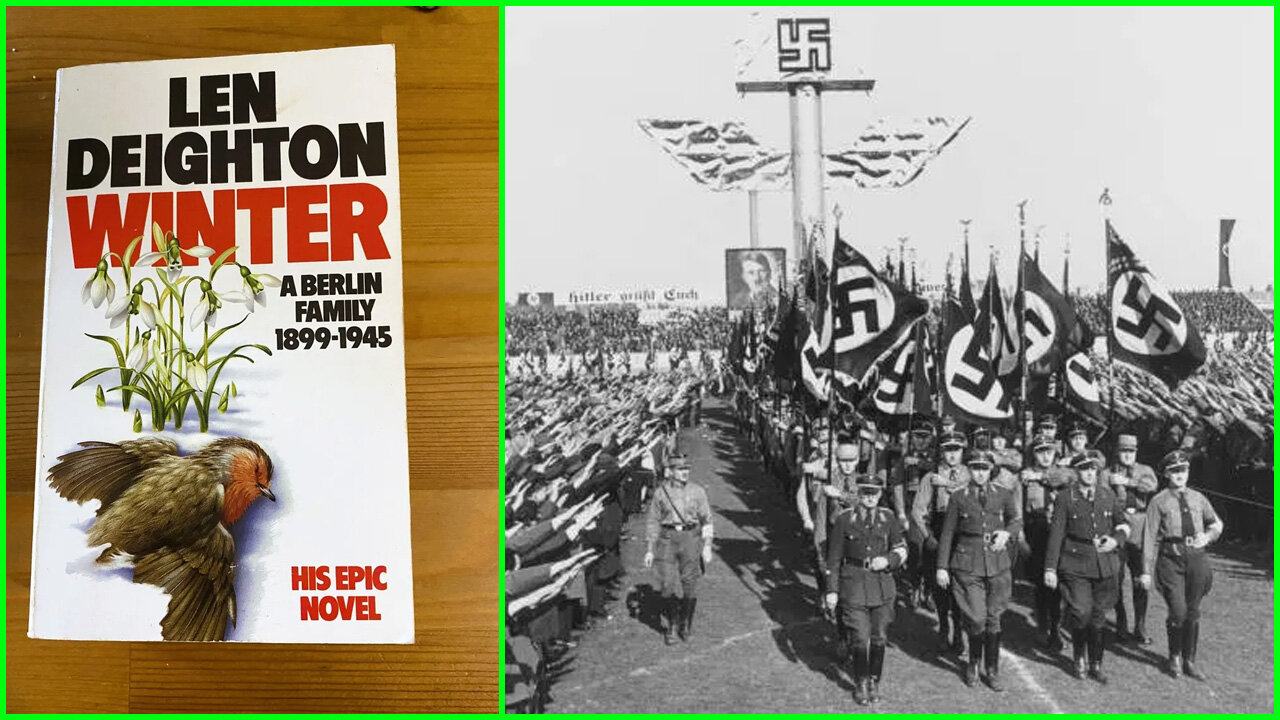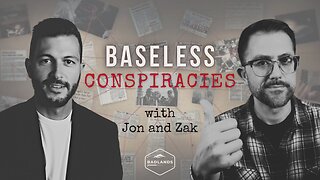Premium Only Content

'Winter: A Berlin Family' (1987) by Len Deighton
Len Deighton's, 'Winter: A Berlin Family, 1899–1945' is a sweeping historical novel that traces the rise and collapse of a German family through some of the most tumultuous decades in modern history. Unlike Deighton's spy thrillers, this work is a meticulously constructed family saga rooted in the political, cultural, and ideological transformations of Germany from the late Imperial era through the fall of the Third Reich. It stands as a prequel to his Bernard Samson novels, yet also functions independently as a profound meditation on complicity, memory, and the personal toll of history.
At its heart, Winter follows the lives of two brothers—Peter and Paul Winter—the sons of a wealthy Berlin industrialist, Harald Winter. The novel opens in the closing years of the 19th century, with the family enjoying prosperity and prestige. The early chapters depict a Kaiserreich society confident in its traditions and values, though already fractured by political tensions. The brothers grow up amid this affluence, educated and ambitious, yet shaped by divergent temperaments and loyalties.
The First World War marks the first rupture. Peter, the elder, enlists with enthusiasm and returns embittered by the violence and futility of trench warfare. Paul, more introspective, avoids the front lines through diplomatic channels. Their experiences during and after the war set them on increasingly opposed paths: Peter, hardened and resentful, finds solace in nationalism and the growing appeal of fascist ideology; Paul, idealistic and rational, gravitates toward law and international cooperation. The brothers’ divergence reflects the broader schisms within German society as it lurches from the Versailles humiliation into Weimar instability and, ultimately, Nazism.
Deighton deftly uses the family as a microcosm of Germany. The Winter home, once a symbol of bourgeois stability, becomes a contested space as ideologies clash and loyalties fray. The brothers’ relationship deteriorates not only due to political differences but also through romantic rivalries, moral choices, and betrayals. As Hitler's regime takes hold, Peter becomes entangled in the machinery of the state, rising within the SS, while Paul—though less active in resistance—finds himself morally and professionally endangered.
The genius of Winter lies in its ability to dramatize history without succumbing to melodrama. Deighton neither lionizes nor caricatures his characters. Peter is no monster, even as he facilitates monstrosity. Paul is no saint, even as he recoils from injustice. The novel is rich in historical texture, weaving real events and figures—such as the Reichstag fire, the Night of the Long Knives, the Nuremberg Laws—into its fictional tapestry. Yet it is never didactic. The personal always remains in focus: strained marriages, conflicted friendships, moments of cowardice and quiet heroism.
By the time the Second World War arrives, the Winter family is broken. Peter, committed to the Nazi cause, becomes an agent of its brutality, while Paul finds himself alienated, estranged, and ultimately complicit through inaction. The war devastates their world physically and morally. In the closing chapters, Deighton does not offer easy redemption or moral clarity. The brothers survive, but not unchanged; their family legacy is tainted by guilt, denial, and loss.
Winter is, in many ways, a novel about the banality of evil—not in the bureaucratic sense of Hannah Arendt, but in the intimate sense of how ordinary people, through ordinary choices, become part of a catastrophe. It is also a novel about memory: what is preserved, what is suppressed, and what remains unspoken in the aftermath of atrocity. Through the Winters, Deighton examines how history is not merely a backdrop but a force that shapes, seduces, and ultimately condemns.
In sum, 'Winter: A Berlin Family', 1899–1945 is an ambitious and haunting work. It combines Deighton’s narrative precision with a novelistic depth rarely found in historical fiction. The book offers no comforting resolutions—only the difficult truth that survival and righteousness are not the same, and that history is a judgment from which no family, no matter how privileged, can escape.
-
 9:05
9:05
Millionaire Mentor
13 hours agoTrump EXPOSES Obama and Biden LIVE As Jim Jordan Backs Him Up
1702 -
 1:34
1:34
WildCreatures
1 day ago $0.76 earnedMajestic Spotted Eagle Rays Fly Past Scuba Diver in the Galapagos Islands
1.03K4 -
 LIVE
LIVE
BEK TV
21 hours agoTrent Loos in the Morning - 10/28/2025
188 watching -
 32:13
32:13
Stephen Gardner
12 hours ago🔥Schumer SHUTDOWN Backfires as Trump CRUSHES Democrats!!
17.5K16 -
 30:24
30:24
Liberty Hangout
7 days agoNo Kings Protestors Go CRAZY: Part 1
42.2K77 -
 42:08
42:08
The Why Files
2 days agoLincoln Conspiracy: a Diary, a Mummy and The Escape of John Wilkes Booth
22.7K31 -
 24:42
24:42
James Klüg
3 days agoAnti-Trump Protester HITS Grandma Thinking She’s With Us
18K17 -
 2:18:46
2:18:46
Tucker Carlson
11 hours agoTucker Carlson Interviews Nick Fuentes
169K628 -
 2:06:42
2:06:42
FreshandFit
12 hours agoCharleston White Addresses The Backlash From His Charlie Kirk Comments
351K82 -
 1:34:52
1:34:52
Badlands Media
17 hours agoBaseless Conspiracies Ep. 156: The ADL Files – Spies, Lies & the Leo Frank Legacy
93.9K40